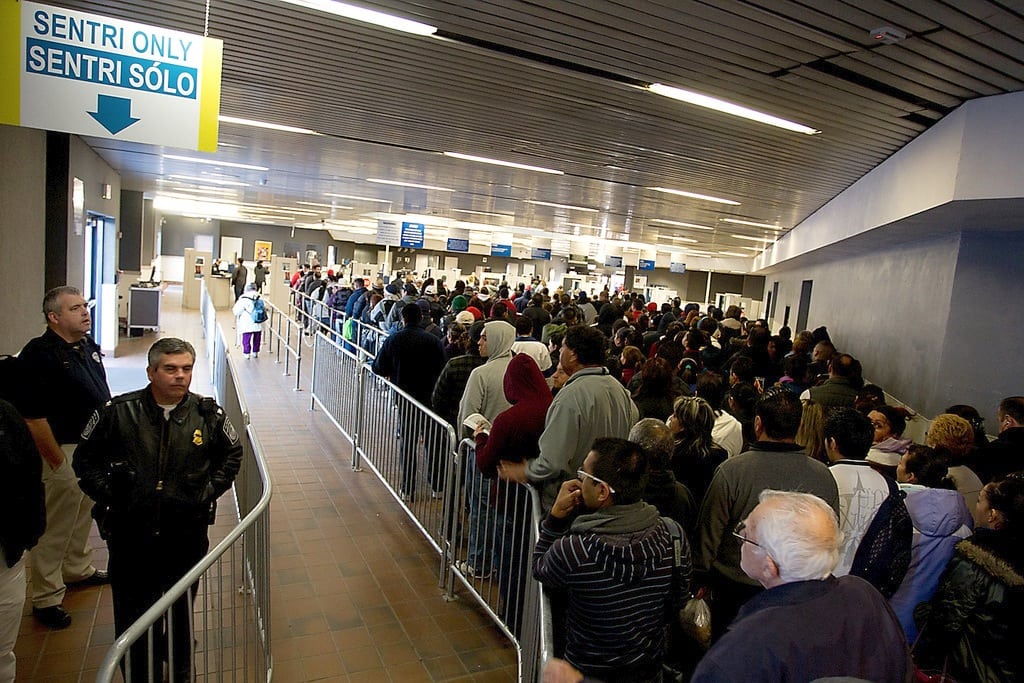Skift Take
Brand USA spends millions marketing the U.S. as a destination, but just fixing the gridlock at U.S. borders could probably do a lot more to entice visitors.
The U.S. Travel Association last week put a price tag on the damage it thinks the international-entry process is causing to the nation’s tourism industry.
The trade group said a survey conducted on its behalf by Consensus Research found that, by experience or word of mouth, at least 100 million overseas travelers are getting the message to avoid travel to the United States, which it says costs the economy at least $95 billion and 518,900 jobs.
The industry wants Congress to provide an additional 1,000 Customs and Border Protection officers — at a cost of about $150 million — to keep wait times at entry stations to 30 minutes or less.
The multi-country online survey sampled 1,200 overseas travelers. U.S. Travel said 43 percent of those who have visited the U.S. say they will recommend to others to avoid a trip to this country because of the entry process. Two-thirds of the travelers said the U.S. would be a more attractive destination if Customs lines and wait times were shorter. Still, the process was not unexpected: six in 10 said their experience with U.S. Customs was “exactly what I would expect from a leading country like the United States.”
Tourism fights early school start
Florida’s tourism industry is trying to block a bill moving through the state Legislature that would allow school districts to start earlier so they finish their first semesters by Christmas break.
Tourism lobbyists say that would undermine a 2006 law that restricts public schools from starting any earlier than 14 days before Labor Day, though academically high-performing counties can get around that restriction. The tourism industry says the later start dates help ensure it has a large enough pool of high-school students to work part-time during the state’s busy summer-travel period.
Despite the opposition, a House education committee last week approved a bill (HB 657), sponsored by Rep. Larry Metz, R-Yalaha, that would give school districts the ability to start sooner. The committee did tighten the measure, adding a provision to limit districts from opening no more than five days earlier than now allowed. Still, representatives of the Florida Restaurant and Lodging Association and the Florida Attractions Association appeared to oppose it. The Senate has yet to advance a version of the legislation (SB 806), sponsored by Lakeland Republican Sen. Kelli Stargel.
Intelity plans global expansion
Hotel-technology company Intelity said last week it plans to open four new sales offices this year, in Chicago, New York, London and Singapore.
The Orlando-based company is the creator of a product called ICE, which allows hotels guests to arrange various services via an in-room portal, such as a touch-screen tablet, TV, smartphone or laptop.
In a release announcing the expansion, Intelity President and Chief Executive Officer David Adelson said the company needs a stronger global presence to match broadening demand. Intelity is recruiting team members for its engineering, development and client-services departments.
“We’re seeing an incredible amount of interest among hotels overseas,” said Jake Buckstead, senior vice president of international-hospitality sales. “In the past few months alone, we’ve been contracted to deploy in more than two-dozen hotels in Europe, Africa, the Middle East and Asia.”
Earlier this year, the company said its product was featured at nearly 500 hotels worldwide.
[email protected] or 407-420-5664 [email protected] or 407-420-5414 ___
![]()
The Daily Newsletter
Our daily coverage of the global travel industry. Written by editors and analysts from across Skift’s brands.
Have a confidential tip for Skift? Get in touch
Photo credit: This is a checkpoint at the U.S.-Mexico border in San Ysidro. U.S. Customs and Border Protection / Flickr.com
